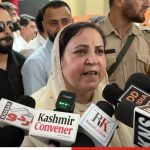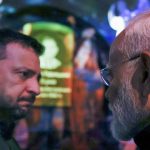New Delhi, Oct 1: Union Minister of State (Independent Charge) Science & Technology; MoS PMO, Personnel, Public Grievances, Pensions, Space and Atomic Energy, Dr Jitendra Singh on Sunday said that in the times to come, the Staff Selection Commission (SSC) aims to conduct recruitment competitive exam in all the 22 Indian languages mentioned in the 8th Schedule of the Constitution. The intention is to provide a language-neutral, level playing field to all the aspiring candidates, he said
Addressing the valedictory session of the two-day ‘Bharatiya Bhasha Utsav: Technology & Bharatiya Bhasha Summit’ at Ambedkar Bhavan here today, Dr Jitendra Singh said, “At the behest of Prime Minister Narendra Modi, from this year onward, SSC examinations are being conducted in 13 languages, that is 11 regional languages in addition to already existing Hindi and English, while before 2014, the candidates had no option, but to choose either Hindi or English as the medium of examination.” He also underlined that before 2014, the translation of English into Hindi was also done very poorly, putting the students at a disadvantageous position.
Dr Jitendra informed that the JEE, NEET and UGC exams are also being conducted in 12 Indian Languages and this historic decision will give impetus to the participation of local youth, improve their selection prospects and encourage regional languages.
He said notable progress has been made in the last more than nine years under the leadership of Prime Minister Narendra Modi to promote the Indian regional languages besides the official Language, Hindi.
The union minister emphasised that all should take pride in the “esteem of the language” for its proper growth and development. He gave examples that all the developed countries including the European Nations take pride in speaking, writing and promoting their own languages and India should also do the same. He informed that PM Modi has given a call to provide Medical and Engineering education in regional languages such as Hindi, Tamil, Telugu, Malayalam, Gujarati and Bengali.
Dr Singh said that PM Modi has taken a historic decision in the new National Education Policy (NEP) by giving importance to the mother tongue of students in Primary, Technical and Medical education. Terming NEP as the biggest path-breaking reform in India since independence, he said, it will transform India’s education system to match global benchmarks.
He hoped that the journey of Indian Languages in the AmritKaal of the next 25 years would truly usher in the Celebrations of Indian Languages in 2047, which he described as “Bhartiya Bhashaon Ka Utsav”.
He said, as a follow-up of the NEP 2020, the development of four National Curriculum Frameworks, viz., NCF for School Education, NCF for Early Childhood Care and Education, NCF for Teacher Education and NCF for Adult Education has been initiated.
Dr Jitendra said India has been harnessing new technologies, including the increasing use of drones, big data analytics, artificial intelligence, blockchain and other innovative technologies. He pointed out that India has created a massive jump in its global ranking of Global Innovation Index (GII) from 81st in the year 2015 to 46th in 2021 among 130 economies of the world.
“PM Modi has paved the way for India to emerge as a Developed Nation in the next 24 years of Amrit Kaal,” he said.








